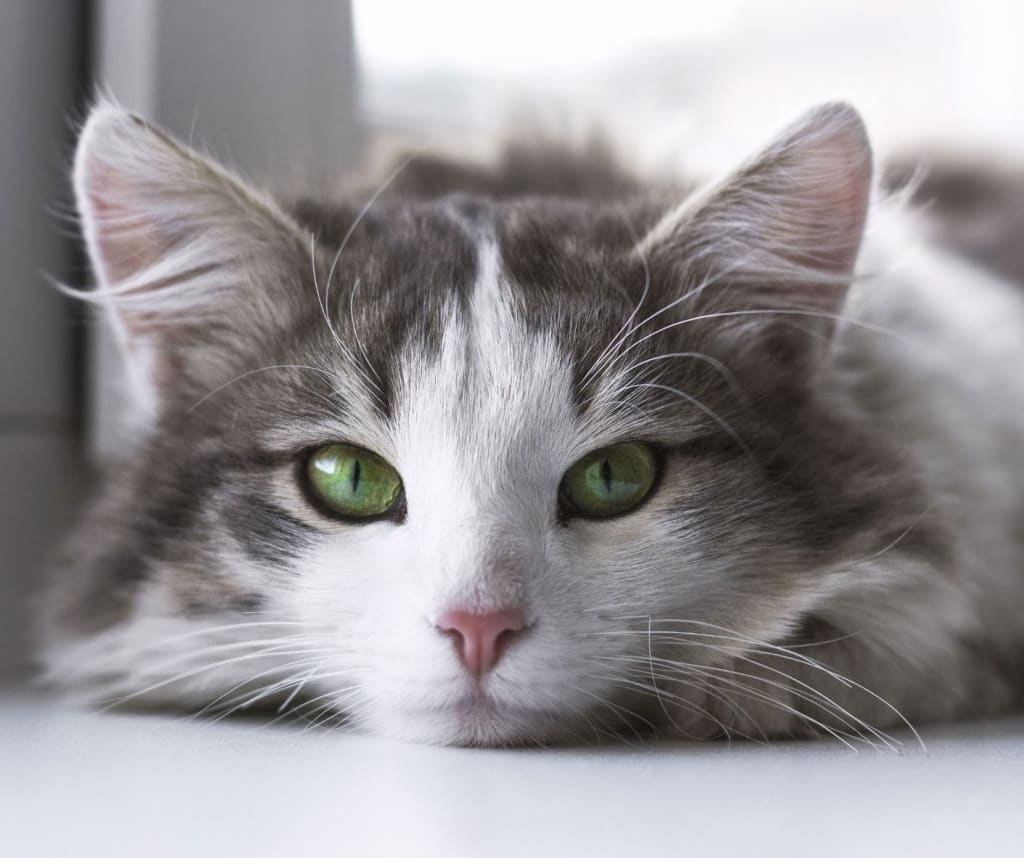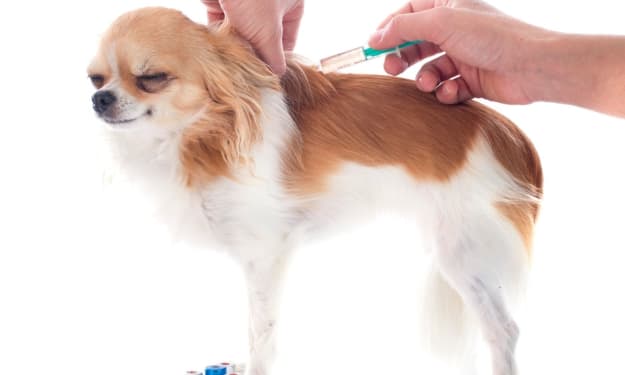Hyperthyroidism in Cats
What You Need to Know

What is the thyroid?
The thyroid is a butterfly-shaped gland in your cat's neck. It helps to regulate all aspects of the body's metabolic rate.
What is hyperthyroidism?
Hyperthyroidism occurs when the thyroid works harder than it should. It becomes overstimulated. Hyperthyroidism is only seen in cats, usually in middle age to older cats.
What are the signs of hyperthyroidism?

These are the most common signs of hyperthyroidism
- Weight loss
- Eating well or acting like he or she is starving
You may also notice the following signs:
- Change in behavior
- Lethargy
- Hyperactivity
- Fever
- Increased heart rate
- Diarrhea
- Increased drink and urine
How is hyperthyroidism diagnosed?
Your veterinarian will do a thorough examination of your cat. He or she may notice a substantial weight loss, even though you tell your veterinarian that your cat is eating just fine (or more than normal).
During the physical, your veterinarian may comment that your cat's heart rate is faster than normal. This can also be a sign of stress, so it is not a diagnosis. He or she may even feel that the thyroid is bigger than normal.
However, the only way to truly diagnose hyperthyroid is by doing bloodwork. Your veterinarian will recommend doing a chemistry (to check other organs), a complete blood count (to check red blood cells, white blood cells, and platelets), and a T4. He or she may also recommend doing a free T4 to get a better look at thyroid function.
What are the treatment options?
There are several treatment options.
Some owners chose to do nothing. They just feed their cats as much as they will eat, in order to keep their weight up.
They may also choose to medicate their cat with Methimazole. Depending on your cat's condition, he or she may need to have this one to two times a day for the rest of your cat's life.
It is important to remember that it can take a while to find out the right dosage for your cat. Your cat will need regular bloodwork (every few weeks or months) to figure out how much medication your cat needs to stay regulated. Once you figure out the right dosage, your cat will still need bloodwork one to two times a year to make sure that it is still good. This bloodwork will also check to make sure that your cat's organs are doing well.
Some owners prefer to get a one-time treatment for their cats. This treatment, known as I-131, can be costly, but the goal is to return your cat's thyroid function back to normal. Your cat will have to stay at a specialty hospital for a few days because he or she will be treated with radioactive iodine. You will have to follow certain rules when he or she comes home, due to the iodine that is still in your cat's system.
This treatment can be costly, though if you add up the cost of the medication and bloodwork over time, it may be about the same. There are no harmful side effects and your cat should gain weight as his or her thyroid starts working properly.

Hyperthyroidism affects middle-aged and older cats. They seem to eat, eat, and eat some more, yet they keep losing weight. You may not even notice that your cat is having trouble. Your veterinarian may notice an increased heart rate during the physical exam.
Once your cat is diagnosed, you have a few choices. You may do nothing. You could also give medication for the rest of your cat's life. However, the best option is radioactive treatment. Though expensive, it will get your cat's thyroid working properly again.
About the Creator
Shelley Wenger
Small town country girl in southern Pennsylvania. Raising two boys on a small farm filled with horses, goats, chickens, rabbits, ducks, dogs, and a cat. Certified veterinary technician and writer at Virtually Shelley.






Comments
There are no comments for this story
Be the first to respond and start the conversation.